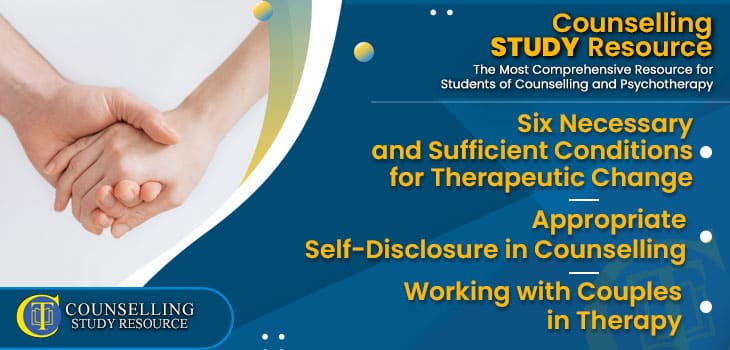See Counselling Skills Used in Real Sessions by Qualified Therapist
Real Sessions – Real Presentations – Real Skills
Gain the competence and confidence to use counselling techniques effectively!

In Episode 231 of the Counselling Tutor Podcast, join hosts Rory Lees-Oakes and Ken Kelly as they take us through this week’s three topics:
The Six Necessary and Sufficient Conditions for Therapeutic Change
Where you may know only 3 core conditions, in this section, Rory and Ken will discuss the importance of the other 3 ‘hidden conditions’:

Real Sessions – Real Presentations – Real Skills
Gain the competence and confidence to use counselling techniques effectively!
In this week’s ‘Focus on Self’, Rory and Ken discuss what could be considered appropriate self-disclosure and what would be considered inappropriate.
The key points of this discussion include:

On-demand access to a rich lecture library covering theory, skills, and professional development for counselling students—Mapped to the UK awarding body criteria
“The Student Library has been BRILLIANT, I can’t recommend it enough!
It has been a lifeline in helping me prepare for practice and my first clients. If you’re considering it, go-for-it, it’s absolutely worth it!”
Kelly – Graduated and now in practice.
This week Rory speaks with Dr. Mary Goss on working with couples in therapy.
The main points of this discussion are as follows:
The Six Necessary and Sufficient Conditions for Therapeutic Change

Get on-demand Certified CPD that is implementable in your practice
